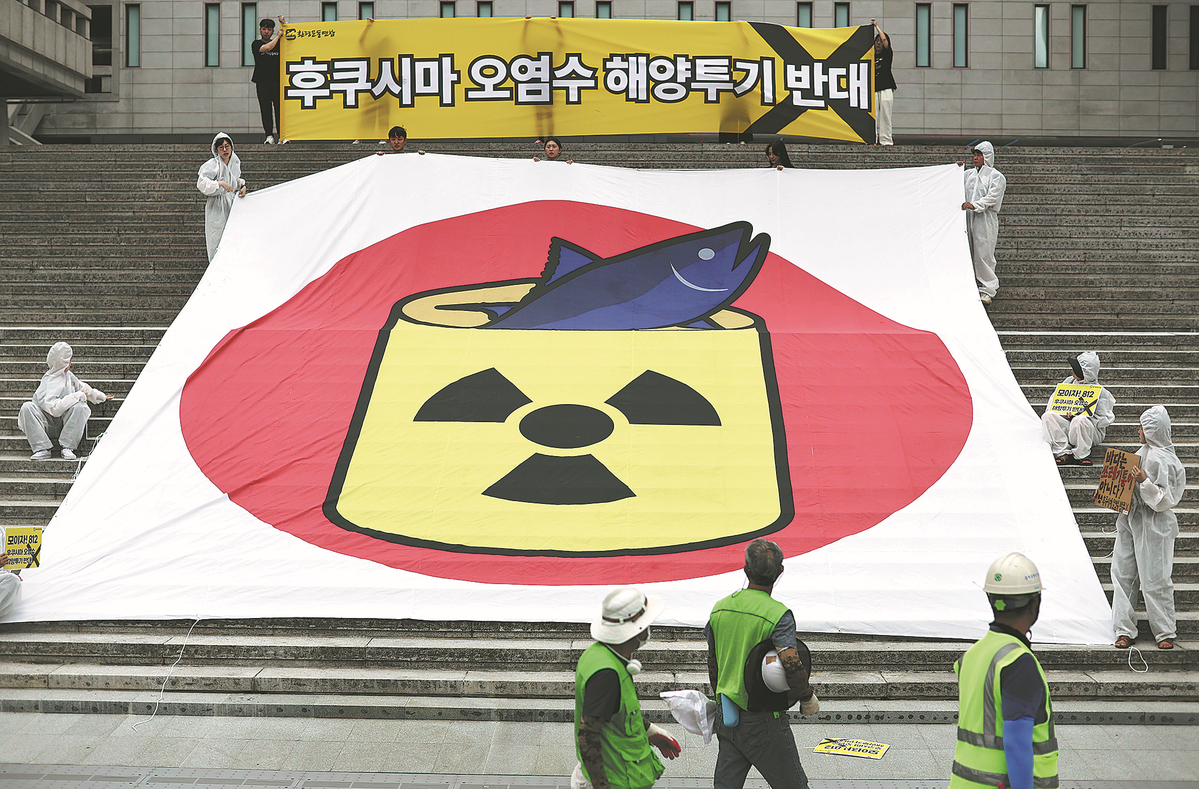Japan's plan to release toxic water slammed
By PRIME SARMIENTO in Hong Kong | China Daily | Updated: 2023-08-08 07:35

Environmentalists and fisherfolk are stepping up their campaign against Japan's plan to dump more than 1 million metric tons of nuclear-contaminated water into the Pacific Ocean.
In the Philippines, apart from holding protest rallies, Philippine advocacy groups are aiming to raise awareness about the dangers of toxic water discharge by organizing in-person gatherings as well as online forums. They are also seeking an audience with the Philippine Department of Foreign Affairs and the Japanese embassy so they can voice their concerns.
Pablo Rosales, national chairperson of PANGISDA-Pilipinas, a coalition of small-scale fisherfolk in the Philippines, said even if Japan discharges the nuclear-contaminated water only into a certain portion of the ocean, there is a big possibility that this will spread out to other bodies of water.
"We fishermen are familiar with water currents and this discharge can pollute the whole Pacific Ocean," Rosales said.
He said their group will continuously campaign against anything that will pollute the ocean. Japan's planned dumping of nuclear-contaminated water not only threatens the fishing communities' livelihoods, but also national food security, Rosales said.
The Philippines is an archipelago and fish is a key protein source for most Filipinos.
Japan is planning to discharge nuclear-contaminated water from the crippled Fukushima Daiichi nuclear power plant into the sea as early as within August, Kyodo News reported on Monday.
Rosales is one of the signatories to a manifesto sent on July 19 by members of the civil society to Philippine Foreign Affairs Secretary Enrique Manalo.
Leaders of fishing communities, youth, environmentalists, the urban poor, and farmers' groups urged the Philippine government to oppose the planned dumping of nuclear-contaminated water into the ocean, and ask Japan to work with the Pacific Islands Forum in formulating alternative options for handling the toxic water.
The community leaders are "wary" of any publicized claims that the water to be discharged has been treated and considered safe, noting the lack of transparency and data to support the claims.
On June 12, the Tokyo Electric Power Company, or TEPCO, operator of the stricken Fukushima nuclear power plant, started testing the equipment to discharge the nuclear-contaminated water from the plant into the Pacific.
TEPCO's move was met with opposition from experts, civic groups, and fishery organizations in Japan, South Korea and Pacific Island countries.
Veronica Cabe, coordinator of the Nuclear and Coal-Free Bataan Movement, said the planned discharge can exacerbate marine pollution in the region. And this pollution is already reducing the supply of food.
Opposition has also come from South Korea. The leader of South Korea's main opposition Democratic Party had sent a letter to Japanese Prime Minister Fumio Kishida, urging him to suspend the plan.
Lee Jae-myung, the Democratic Party chief, delivered the letter via the Japanese embassy in Seoul on July 28, calling on Kishida to hold off on releasing nuclear-contaminated water from the Fukushima Daiichi nuclear power plant, the party spokesman told a briefing on Monday.
Xinhua contributed to this story.
























